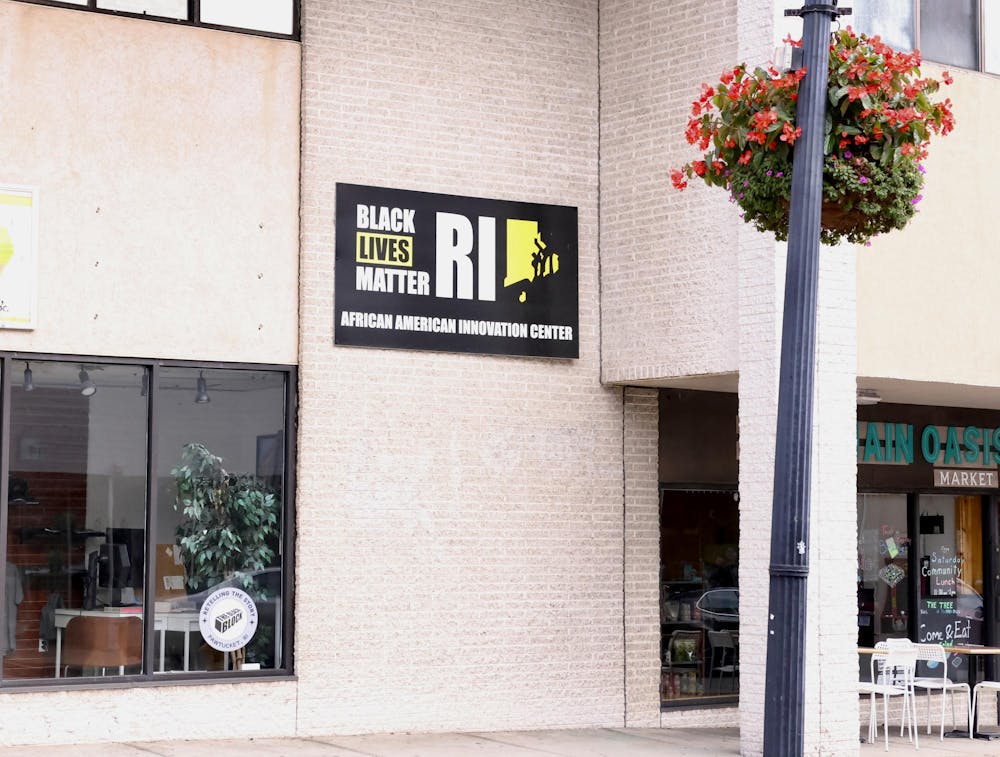The 225 Main St. building sat empty at the heart of downtown Pawtucket. But in 2020, developer Leslie Moore bought the property with a clear mission in mind: uplifting Black businesses and people of color.
Now, the building houses therapists, a nurse practitioner, a professional development center, the Community Health Network and Black Lives Matter RI — all of which are Black- or Latino-run.
For Yejide Muhammad, a therapist who runs individual and group sessions in the space, working alongside other providers of color creates a feeling of comfort. “We’re like a family,” she said.
Muhammad contrasted this work culture with the racism she has experienced while in clinical positions within white-dominated spaces. In May 2021, she started her own practice: Yae’s Center for Healing and Development.
She also emphasized that the community is important not only for the people who work in the space, but also for clients. Muhammad explained that during intakes, clients have shared that they sought her out because they wanted a Black therapist.

According to Suenelly Cortes, the CEO of Community Health Network, sharing the building with BLM RI has helped people of color “feel more comfortable reaching out to us, versus other companies that I have worked in.”
Dondi Alves, a supervisor and substance abuse counselor for Community Health Network, has found that people of color usually aren’t offered the full extent of available resources in other health spaces.
“Here, we serve everybody without any discrimination,” he said.
The companies are also aided by sharing space with one another. “When we first came here, I think that maybe one or two people walked through the door for services,” Alves said. But this is no longer the case, in part because the different organizations within the building will refer clients to one another, Alves explained.
The Community Health Network, which moved into the building early this year, has grown from 3 to 35 employees in the last year, according to Cortes.
In the building, businesses have been able to expand their offerings and resources provided. Muhammad shared that she now has more space to run her therapy sessions, which include a grief group, a parenting group and a children’s group.

The Professional Adult Development Institute moved into the building in June. Adriana Orozco, executive director of finance, explained that the institute offers classes in working as a personal care assistant, customer service, English and Spanish language learning and more. These classes are taught to a predominantly immigrant population to help people gain employment or succeed in higher education, she said.
Supreme Washington, the executive director of operations for BLM RI, said that the building aims to be a “one-stop, one shop” place for people in need.
The arrangement is particularly useful to achieving that mission. Alves described “the opportunity to work with different entities in the building” as a major benefit of the location. “For example, we have a psych nurse, so if we have a client that needs a psych evaluation , or medication, we can go right there,” he said.
In addition to serving as an educational center, BLM RI provides workforce development training, assistance to small business owners and support for currently and formerly incarcerated individuals. It also lobbies for issues relevant to the Black community.
That proximity is also helpful for the Community Health Network, which strives to provide wraparound services for their clients, Alves said. He explained that the 23 Community Health workers employed by the network perform outreach across Rhode Island and help people to apply for SSI or SNAP benefits, find housing and get vital documents such as IDs.
“When we work with the clients, we work passionately with them ,” he added, “because we’ve been through the same thing,” he added.”
Mikayla Kennedy is a Metro editor covering housing and transportation. They are a junior from New York City studying Political Science and Public Policy Economics.





